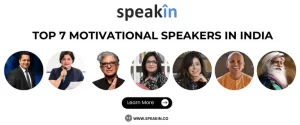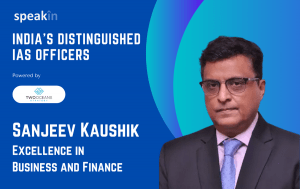Universal Basic Income in India

UBI equals Un-Building India
If India’s Economic Policy regime were an ice cream parlour, then Universal Basic Income or UBI would be the flavour of the day. From opposition “leaders” to “eminent” economists, many have embraced this concept as the silver bullet to solve all of India’s problems. Let’s first dissect the very concept of UBI and then discuss its efficacy in India’s context. The ‘U’ in UBI is universal, i.e., everyone gets it, whether you work hard or not, whether you are a responsible citizen or not, you get it. However, some people have tried to qualify this all-pervasive nature of UBI by asking for limiting it to poor individuals or rural areas. The ‘B’ for basic begs the question – how much is basic? If poverty alleviation is the goal, should the controversial poverty line be the threshold to decide the quantum of transfers that potential beneficiaries get? But given that it’s universal, poverty alleviation does not seem to be the only goal. Perhaps, its income enhancement. But to be fair, the ‘basic’ aspect is easiest to understand, and some number-crunching can yield an acceptable number. The ‘I’ for income is the trickiest. I looked up the definition of ‘income’ in the Cambridge dictionary, and it defines it as “Money that is earned from doing work or received from investments”. In the case of UBI, neither does an individual work, nor do they invest their time or energy, or money to earn anything. Thus, the term income is just wrong to use. Some alternatives could be a handout or cash transfer. But improving phraseology is not the purpose of this article.
DBT versus UBI
One single aspect that makes UBI appealing is that it is an efficient way of eliminating poverty. A fixed amount can be transferred to a beneficiary’s bank account, who can then use it to live a life of dignity. The two people who should find this objectionable are former PM Dr Manmohan Singh and the man who created the game-changing system of Aadhaar (or Unique Identification), Nandan Nilekani. Both these men commendable job of setting up the infrastructure for Direct Benefits Transfers (DBT). The current Modi government took it to the next level by suitably using it for various government programs to minimise leakages. In the year 2017-18, nearly 34,000 crore rupees were saved due to DBT. The fundamental difference between DBT and UBI is targeting. While DBT is targeted to ensure that cash is transferred only and only when individuals consume necessary goods and services such as LPG, food, etc., UBI gives individuals the freedom to use money in a way they want. So, in the state’s eyes, a UBI beneficiary who spends money on alcohol and drugs is the same as a beneficiary who spends it on food and education. Does that sound virtuous by any measure?
UBI in India’s political economy
The biggest challenge that proponents of UBI, especially the economists, fail to grasp is the consequences associated with it in India’s political and economic context. UBI fits India’s fiscal math only when the money being used for other welfare schemes such as MGNREGA, subsidies for food and fertilisers is bundled together and handed out directly with “no strings attached”. So, it is either UBI or the entire bundle of subsidies in place to make it work. In India, when one or the other election is due every 6 months, can you expect an “either/ or” policy? So, the result will be ‘Subsidies + UBI’, which will irreparably dent India’s fiscal discipline framework. But let’s go a step further and assume that some larger-than-life politicians mustered the courage to club all welfare handouts and introduce one UBI. The next question is, will (s)he be able to roll it back even one bit? The benefit of multiple types of subsidies is that government can modulate them based on needs and fiscal prudence. For instance, if crude oil prices further come down, the government can reduce its contribution to LPG subsidies. But if UBI is a single transfer, can you imagine the mayhem that a reduction of even 1 Rupee in UBI will cause? Any government that dares to reduce the UBI level will be termed “anti-poor”, even for a good reason. And UBI will be like an albatross around India’s neck that will only grow bigger.
UBI for poverty alleviation?
What should be the goal of any poverty alleviation programme? That it ends one day. That it helps people earn enough income not to be dependent on it. The unfortunate part about UBI is that it is one unique welfare program with no end in sight. You will have to continue it forever. Off late, some economists have tried to recast UBI’s novelty by eliminating its universality. For instance, former Chief Economic Advisor Arvind Subramanian has argued against implementing it only in rural areas and for a fraction of the population. Now that sounds more sensible than the typical UBI but isn’t sensible enough. Let’s take the case of excluding the rich. It can be done using census data or giving local bureaucrats the power to determine who should be a “beneficiary”. The latter is a sure shot way to breed corruption, and the former distorts the incentives for families to own better assets. One may argue that the current DBT system works on the same principle. But then the next question is, what’s the extra benefit that UBI brings? On the contrary, it gives a free hand to individuals to spend money on whatever they want. The rural-urban segregation is laughable at best. To assume that rural poor need extra money and urban poor do not is childish at best and vote bank appeasement otherwise.
UBI is also portrayed as an antidote to all evils by suggesting that prevailing subsidies and income support measures are too regressive, i.e., they benefit the rich more than the poor. However, UBI is, in fact, more regressive. Even if you limit UBI to the bottom 50 per cent in terms of income, the reality will be that the poorest household and the one that is richer than nearly half of Indian households will get the same cash transfer. In the absence of credible proposals, let’s assume that Arvind Subramanian and others prepared the proposal to introduce a Quasi-Universal Basic Income for Rural India (QUBRI) at Rs 18,000/household for the bottom 75 per cent of households is accepted. In such a case, the poorest and richest of this lot get an equal annual amount. If this is not regressive, what is? Thus, UBI will make it harder for the poorest to catch up as it fails to target the income inequality problem. The Un-Indian nature of UBI The most important reason that makes UBI un-Indian and a bad idea is its innate nature to habituate people to receive money without any work in return. Even the Budget 2019 income enhancement program for farmers – PM Kisan – hinges on the principle that a farmer who works hard and is not rewarded adequately by the market deserves extra income. The operative words here are “farmer” and “work”. Even MGNREGA, which offers guaranteed employment and income, asks for work to be done in return. UBI, if introduced in India, will be a program that for the first time promises to run forever and hand out money by asking for absolutely nothing in return. One of the most quoted verses of Bhagwat Gita is “Karmanye Vadhikaraste Ma Phaleshu Kada Chana”; Translation: Never let the result be the motive behind duty. UBI flips this on its head and legitimises the un-Indian idea of expecting rewards without any work in return.
(The author is a Young Professional with the Economic Advisory Council to the Prime Minister. The views expressed are strictly personal)





